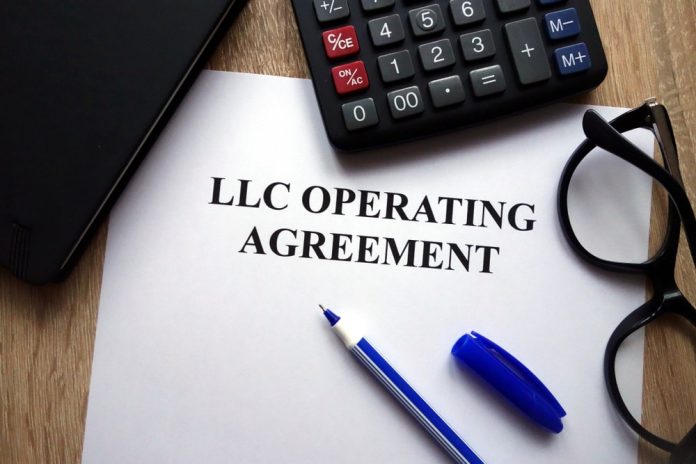By Stanley Cygelman and Steven Ayr
The Bipartisan Budget Act of 2015 (“BBA”) created a new regime for auditing partnerships (which includes almost all LLCs) and collecting and assessing tax from such entities, for tax years beginning on and after January 1, 2018. As a result, all operating agreements for LLCs formed after December 31, 2017 are being drafted to address the new BBA procedures. If you are a member or manager of an LLC that was formed prior to January 1, 2018, the BBA procedures will apply (with certain exceptions) to all years going forward, and you should therefore strongly consider updating any existing operating agreement to ensure your company continues to control its own tax destiny.
A Brief Overview of the Changes Brought about by the BBA Procedures
The most obvious change brought about by the BBA procedures is that there will no longer be a “tax matters partner” to communicate with the IRS; that role has been replaced by the “partnership representative.” Unlike the tax matters partner, the partnership representative no longer needs to be a partner/member but can be an outside service provider. Importantly, as between the partnership representative and the IRS, the partnership representative has full authority to handle and bind tax matters (audits and litigation) on behalf of the LLC and its members. As a result, governance provisions should be included in operating agreements to establish how (i.e., by whom) the partnership representative will be designated, as well as the scope of the partnership representative’s authority, including the circumstances under which certain elections (discussed below) can be made by the partnership representative. It is also important to note that if a partnership representative is not designated by the LLC, the IRS has the power to designate the partnership representative itself, in a sense choosing its own opponent.
Substantively, unless an LLC can either opt-out or elect-out (both are discussed below) from the BBA procedures, the primary update is that the IRS may now look to the partnership (i.e., the LLC), instead of the individual partners, to satisfy any tax underpayment in the audited year, regardless of any change in composition of the partnership in the intervening time period. It will then fall to the partnership to recover any underpayments from individual partners/members, including former partners/members. As such, an integral part of any updated operating agreement should be the ability of the LLC to seek repayment from former partners/members.
As noted above, in certain circumstances an LLC can either opt-out or elect-out of the BBA procedures, and an updated operating agreement should lay out how those decisions are made and authorized.
Opt-out: Certain entities are eligible to opt-out of the new BBA procedures. To be eligible, the partnership must affirmatively opt-out for the tax year with the partnership’s timely-filed return after proper notice to the partners; provide 100 or fewer K-1s to its partners; and be composed only of partners that are individuals, C corporations, foreign entities that would be a C corporation under U.S. law, S corporations, or the estates of deceased partners.
Most notably, entities with trusts as partners will not be eligible to opt-out; this consideration might factor into how the LLC views “permitted transfers” to trusts for estate planning purposes. For many entities, particularly small LLCs with infrequently changing membership, opting out will likely be the best option. However, practical concern has been expressed that for some entities, particularly those with pass-through entities as their partners, opting-out will mean choosing to provide the IRS with something akin to a roadmap for conducting an audit of the ultimate owners of pass-through entities; and so opting-out may not be the right choice for each LLC, even if eligible.
Elect-out: For those LLCs that are not eligible (or do not wish to) opt-out, with certain restrictions, most notably a quick 45-day time limit from the date of receipt of a final notice of partnership adjustment from the IRS, the LLC may elect to have the members (in lieu of the LLC) be obligated pay the tax liability. If that election is made, the LLC will issue new K-1s to the audited year members, and any penalties, interest, and additions to tax will be paid by each member who was a member in the audited year (including former members).
Stanley Cygelman is a partner at Casner & Edwards. He concentrates his practice in the corporate and intellectual property areas, regularly counseling clients in all stages of their lifecycle, from initial organization of start-up ventures, including founder agreements, employee equity incentive arrangements and acquisition and protection of intellectual property rights. He can be reached at cygelman@casneredwards.com.
Steven Ayr is an associate at Casner & Edwards and represents the entrepreneur community, including the small business, startup and artist communities. He has experience structuring organizations from formation to dissolution, negotiating, drafting and revising the contracts that make businesses tick, and litigating disputes when relationships break down. Steve can be reached at ayr@casneredwards.com.
LLC stock photo by Piotr Swat/Shutterstock







